Letters from the Madhouse
An uncompromising account of a Bosnian writer's life as an exile in America. Considered a literary icon of Bosnia, Dario Dzamonja wrote raw, unfiltered accounts of life in the streets of Sarajevo and the colorful, caustic characters who inhabited them--including himself. His unmistakable voice interwove criminal slang, local vernacular, and autobiographical inquisition to craft stories in which he often served as protagonist and antagonist. In 1993, Dario arrived in Madison, Wisconsin, fleeing the carnage of the war that ripped Sarajevo in half. Letters from the Madhouse is his uncompromising account as a refugee in America and his recollections of a lost hometown. Spoken with ashen humor, Dario details his down-and-out life in the Midwest as he pines for the past and dodges the future, taking on odd jobs and associating with sketchy characters who amble in and out of the bars he often finds himself in. Through these incendiary short stories, Dario reckons with the destruction of his city and his life before finally resolving to someday return home. Translated by his daughter Nevena Dzamonja, Letters from the Madhouse reels between deliverance and annihilation, rapturing the reader with vivid prose and brutal detail in a collection which marks Dario Dzamonja's English-language debut.
Popular Tales From the Norse
This collection presents a wide-ranging anthology of Scandinavian folk narratives gathered by George Webbe Dasent, showcasing the rich storytelling traditions that flourished across the Norse world. Drawing on material reminiscent of the Grimm Brothers and other foundational folklore collectors, it features tales filled with giants, trolls, witches, enchanted tasks, and talking animals. Dasent's extensive introduction situates recurring motifs within the beliefs and cultural patterns of pre-Christian Norse societies, offering valuable context for understanding how these stories functioned within their historical milieu. The volume balances scholarly insight-complete with detailed notes-with accessible, engaging prose in the tales themselves, making it suitable for both academic readers and general audiences. An added appendix of West Indian Anansi stories broadens the collection's comparative scope. Together, these narratives illuminate the imaginative landscape of Scandinavian folklore and the enduring power of traditional storytelling.
A Shorter Ulysses
This volume is a major event in both the James Joyce and Anthony Burgess literary annals. It not any marks the first publication of Burgess's Shorter Ulysses, which was only recently discovered in the Burgess archives, but also the first republication this century of Burgess's extraordinary musical play Blooms of Dublin, based of course on Ulysses. The play has not been available in print for 38 years. Indeed it was only once performed (but as a radio production) on the centenary of Joyce's birth on February 2nd 1982. Burgess's A Shorter Finnegans Wake, published in 1966, is still much loved and probably enjoyed more than Joyce's full length--and very difficult--novel. A Shorter Ulysses follows the same formula of being both an abridgement of the text (actually quite an intense one) and the provision of comments interspersed within the text. A Shorter Ulysses is introduced by Burgess's biographer and Director of the International Anthony Burgess Foundation, Andrew Biswell. It also contains Burgess's foreword to the BCA edition of Ulysses published in 1981-- a two thousand word piece which manages to capture the very essence of Joyce's masterwork and provides a perfect introduction to the novel, particularly for new readers. So, within these pages, there is a feast for Joyce and Burgess scholars as well as a totally accessible gateway to Ulysses for readers who perhaps have yet to dive into the deep waters of one of the most iconic--and of course controversial--novels of modern times.
Emilia Pardo Baz獺n
Spanish writer, intellectual, and feminist Emilia Pardo Baz獺n (1851-1921) was a master of the short form and practitioner of the style that became known as naturalism. This collection gathers twenty-seven of her stories in English translation, revealing the narrative complexity, keen psychological insight, and careful attention to realistic detail that was characteristic of her work. The highly symbolic titular story, "The White Horse," qualified Pardo Baz獺n as the godmother of the Generation of '98, the group of writers who exhorted Spain to rid itself of inertia and fixation on past glories. Influenced by the work of Guy de Maupassant and ?mile Zola, Pardo Baz獺n's themes are fear, love, hatred, forgiveness, cruelty, repentance, homesickness, and madness--that is, naked reality as experienced across social strata in her time.
Irish Witchcraft and Demonology
In this work the history of Irish witchcraft is lined up with the trials that followed and the convictions that followed. Also included are the basic beliefs in demonology and the occult that the locals believed in and held to in the day.Please note that this is an 8 pt font size version of this book.
Selected Nonfiction, 1962-2007
J. G. Ballard's collected nonfiction from 1962 to 2007, mapping the cultural obsessions, experiences, and insights of one of the most original minds of his generation. J. G. Ballard was a colossal figure in English literature and an imaginative force of the twentieth century. Alongside seminal novels--from the notorious Crash (1973) to the semi-autobiographical Empire of the Sun (1984)--Ballard was a sought-after reviewer and commentator, publishing journalism, memoir, and cultural criticism in a variety of forms. This volume collects the most significant short nonfiction of Ballard's fifty-year career, extending the range of the only previous collection of his nonfiction, A User's Guide to the Millennium (1996), which selected essays and reviews published between 1962 and 1995. A decade on from Ballard's death in 2009, a new generation of readers needs a new collection. In the period following A User's Guide, Ballard's writing addressed 9/11, British politics from New Labour onward, and what he termed "the rise of soft fascism"--a diagnosis that maintains its relevance amid a shift toward right populism in European and US politics. Beautifully edited by Ballard scholar and novelist Mark Blacklock, this volume includes Ballard's editorials and manifestos; commentaries on his own work; commentaries on the work of others; reviews; and more. Above all, it makes the case for the currency of Ballard's work at a contemporary juncture at which so many of his diagnoses concerning the media and politics have become apparent.
English Prose and Verse From Beowulf to Stevenson
"English Prose and Verse From Beowulf to Stevenson" is a comprehensive anthology showcasing the rich tapestry of English literature across centuries. Compiled by Henry Spackman Pancoast, this collection presents a diverse range of works, from the epic poem Beowulf to the prose and poetry of Robert Louis Stevenson. Readers will encounter seminal pieces representing various periods and styles, offering a panoramic view of the evolution of English literary expression. This anthology serves as an invaluable resource for students, scholars, and anyone seeking a deeper appreciation of the English language's literary heritage.This work has been selected by scholars as being culturally important, and is part of the knowledge base of civilization as we know it. This work was reproduced from the original artifact, and remains as true to the original work as possible. Therefore, you will see the original copyright references, library stamps (as most of these works have been housed in our most important libraries around the world), and other notations in the work.This work is in the public domain in the United States of America, and possibly other nations. Within the United States, you may freely copy and distribute this work, as no entity (individual or corporate) has a copyright on the body of the work.As a reproduction of a historical artifact, this work may contain missing or blurred pages, poor pictures, errant marks, etc. Scholars believe, and we concur, that this work is important enough to be preserved, reproduced, and made generally available to the public. We appreciate your support of the preservation process, and thank you for being an important part of keeping this knowledge alive and relevant.
Reineke Der Fuchs
"Reineke Fuchs" (translated as "Reynard the Fox") is a classic work adapted by Karl Christian Ludwig Schmidt, presenting the enduring tales of Reynard, the clever and cunning fox. This edition features 8 illuminated images, bringing the medieval allegorical stories to life. These stories, filled with wit and satire, expose the follies and vices of society through the escapades of anthropomorphic animals.Reynard's adventures, marked by his trickery and ability to outsmart his rivals, provide timeless entertainment and social commentary. This book will appeal to readers interested in classic literature, animal tales, and the art of storytelling.This work has been selected by scholars as being culturally important, and is part of the knowledge base of civilization as we know it. This work was reproduced from the original artifact, and remains as true to the original work as possible. Therefore, you will see the original copyright references, library stamps (as most of these works have been housed in our most important libraries around the world), and other notations in the work.This work is in the public domain in the United States of America, and possibly other nations. Within the United States, you may freely copy and distribute this work, as no entity (individual or corporate) has a copyright on the body of the work.As a reproduction of a historical artifact, this work may contain missing or blurred pages, poor pictures, errant marks, etc. Scholars believe, and we concur, that this work is important enough to be preserved, reproduced, and made generally available to the public. We appreciate your support of the preservation process, and thank you for being an important part of keeping this knowledge alive and relevant.
Contributions to Fraser's Magazine for Town and Country
The Valiant Black Man in Flanders / El Valiente Negro En Flandes
A play about defiance of systemic racism. Juan de M矇rida, an Afro-Spanish soldier aspires to social advancement in the Netherlands during the Eighty Years' War (1566-1648). His main enemies are not Dutch rebels but his white countrymen, whom he defeats at every attempt to humiliate him. In this play one encounters military culture, upward mobility, mistaken identities, defying destiny, royal pageantry, swordfights, cross-dressing, revenge, homosexual anxiety, and inter-racial marriage. Andr矇s de Claramonte's El valiente negro en Flandes (c.1625) is an Afrodiasporic play that enjoyed great success and multiple stagings in Spain and in Latin America. Its 1938 negrista performance in Havana, Cuba, and Frantz Fanon's Black Skin, White Masks, attest to the power of this play to illuminate contemporary racial dynamics.This is the first annotated, critical edition and English translation of El valiente negro en Flandes with a comprehensive introduction, three critical essays, the critical apparatus comparing the eleven extant versions of the play, and an appendix with alternative scenes and related historical documents. A tool for scholars of early modern European literature and a pedagogical aid to discuss the early discourses on Blackness in Spain and its trans-Atlantic empire.
English Prose and Verse From Beowulf to Stevenson
"English Prose and Verse From Beowulf to Stevenson" is a comprehensive anthology showcasing the rich tapestry of English literature across centuries. Compiled by Henry Spackman Pancoast, this collection presents a diverse range of works, from the epic poem Beowulf to the prose and poetry of Robert Louis Stevenson. Readers will encounter seminal pieces representing various periods and styles, offering a panoramic view of the evolution of English literary expression. This anthology serves as an invaluable resource for students, scholars, and anyone seeking a deeper appreciation of the English language's literary heritage.This work has been selected by scholars as being culturally important, and is part of the knowledge base of civilization as we know it. This work was reproduced from the original artifact, and remains as true to the original work as possible. Therefore, you will see the original copyright references, library stamps (as most of these works have been housed in our most important libraries around the world), and other notations in the work.This work is in the public domain in the United States of America, and possibly other nations. Within the United States, you may freely copy and distribute this work, as no entity (individual or corporate) has a copyright on the body of the work.As a reproduction of a historical artifact, this work may contain missing or blurred pages, poor pictures, errant marks, etc. Scholars believe, and we concur, that this work is important enough to be preserved, reproduced, and made generally available to the public. We appreciate your support of the preservation process, and thank you for being an important part of keeping this knowledge alive and relevant.
The Poems of Shelley: Volume Six
The final volume of a six-volume edition of The Poems of Shelley, which aims to present all of Shelley's poems in chronological order and with full annotation. Now completed, this is the most comprehensive edition of Shelley's poetry available to students and scholars.
Irish Literature
Explore the rich tapestry of Irish literary tradition with "Irish Literature, Volume 8: Irish Authors And Their Writings In Ten Volumes." This volume offers a curated selection of writings from various Irish authors, providing a comprehensive overview of Ireland's contribution to the literary world. Delve into the historical and cultural contexts that shaped these works, and discover the unique voices that have emerged from the Emerald Isle. From classic tales to hidden gems, this collection showcases the depth and breadth of Irish storytelling. Whether you are a scholar, a student, or simply a lover of literature, this volume promises to enrich your understanding and appreciation of Irish literary heritage.This work has been selected by scholars as being culturally important, and is part of the knowledge base of civilization as we know it. This work was reproduced from the original artifact, and remains as true to the original work as possible. Therefore, you will see the original copyright references, library stamps (as most of these works have been housed in our most important libraries around the world), and other notations in the work.This work is in the public domain in the United States of America, and possibly other nations. Within the United States, you may freely copy and distribute this work, as no entity (individual or corporate) has a copyright on the body of the work.As a reproduction of a historical artifact, this work may contain missing or blurred pages, poor pictures, errant marks, etc. Scholars believe, and we concur, that this work is important enough to be preserved, reproduced, and made generally available to the public. We appreciate your support of the preservation process, and thank you for being an important part of keeping this knowledge alive and relevant.
Alexandra College Literary Society. Art Readings For 1880. 5pt
Alexandra College Literary Society. Art Readings For 1880 offers a glimpse into the intellectual life of Alexandra College, Dublin, during the late 19th century. Compiled by Margaret MacNair Stokes, this volume captures the spirit of the college's literary society through a series of art readings delivered in 1880. The collection provides valuable insights into the artistic tastes and cultural interests of the period, showcasing how art was discussed and appreciated within an educational setting for women. This unique anthology is of interest to scholars of Irish history, art history, and women's education, offering a fascinating window into a specific moment in Ireland's cultural past.This work has been selected by scholars as being culturally important, and is part of the knowledge base of civilization as we know it. This work was reproduced from the original artifact, and remains as true to the original work as possible. Therefore, you will see the original copyright references, library stamps (as most of these works have been housed in our most important libraries around the world), and other notations in the work.This work is in the public domain in the United States of America, and possibly other nations. Within the United States, you may freely copy and distribute this work, as no entity (individual or corporate) has a copyright on the body of the work.As a reproduction of a historical artifact, this work may contain missing or blurred pages, poor pictures, errant marks, etc. Scholars believe, and we concur, that this work is important enough to be preserved, reproduced, and made generally available to the public. We appreciate your support of the preservation process, and thank you for being an important part of keeping this knowledge alive and relevant.
The Whole Comical Works Of Mons. Scarron ...
Discover the uproarious world of 17th-century French wit and humor in "The Whole Comical Works Of Mons. Scarron...". This comprehensive collection, translated and curated by John Savage, brings together all of Scarron's novels, histories, select letters, and characters, offering a panoramic view of his comedic genius.Dive into Scarron's satirical narratives, celebrated for their irreverent humor and keen observations of society. This edition captures the essence of Scarron's enduring appeal, presenting his works in a format accessible to modern readers. Whether you are a scholar of French literature or a lover of classic humor, this volume promises hours of laughter and insight into the world of a literary master.This work has been selected by scholars as being culturally important, and is part of the knowledge base of civilization as we know it. This work was reproduced from the original artifact, and remains as true to the original work as possible. Therefore, you will see the original copyright references, library stamps (as most of these works have been housed in our most important libraries around the world), and other notations in the work.This work is in the public domain in the United States of America, and possibly other nations. Within the United States, you may freely copy and distribute this work, as no entity (individual or corporate) has a copyright on the body of the work.As a reproduction of a historical artifact, this work may contain missing or blurred pages, poor pictures, errant marks, etc. Scholars believe, and we concur, that this work is important enough to be preserved, reproduced, and made generally available to the public. We appreciate your support of the preservation process, and thank you for being an important part of keeping this knowledge alive and relevant.
Alexandra College Literary Society. Art Readings For 1880. 5pt
Alexandra College Literary Society. Art Readings For 1880 offers a glimpse into the intellectual life of Alexandra College, Dublin, during the late 19th century. Compiled by Margaret MacNair Stokes, this volume captures the spirit of the college's literary society through a series of art readings delivered in 1880. The collection provides valuable insights into the artistic tastes and cultural interests of the period, showcasing how art was discussed and appreciated within an educational setting for women. This unique anthology is of interest to scholars of Irish history, art history, and women's education, offering a fascinating window into a specific moment in Ireland's cultural past.This work has been selected by scholars as being culturally important, and is part of the knowledge base of civilization as we know it. This work was reproduced from the original artifact, and remains as true to the original work as possible. Therefore, you will see the original copyright references, library stamps (as most of these works have been housed in our most important libraries around the world), and other notations in the work.This work is in the public domain in the United States of America, and possibly other nations. Within the United States, you may freely copy and distribute this work, as no entity (individual or corporate) has a copyright on the body of the work.As a reproduction of a historical artifact, this work may contain missing or blurred pages, poor pictures, errant marks, etc. Scholars believe, and we concur, that this work is important enough to be preserved, reproduced, and made generally available to the public. We appreciate your support of the preservation process, and thank you for being an important part of keeping this knowledge alive and relevant.
Reineke Der Fuchs
"Reineke Fuchs" (translated as "Reynard the Fox") is a classic work adapted by Karl Christian Ludwig Schmidt, presenting the enduring tales of Reynard, the clever and cunning fox. This edition features 8 illuminated images, bringing the medieval allegorical stories to life. These stories, filled with wit and satire, expose the follies and vices of society through the escapades of anthropomorphic animals.Reynard's adventures, marked by his trickery and ability to outsmart his rivals, provide timeless entertainment and social commentary. This book will appeal to readers interested in classic literature, animal tales, and the art of storytelling.This work has been selected by scholars as being culturally important, and is part of the knowledge base of civilization as we know it. This work was reproduced from the original artifact, and remains as true to the original work as possible. Therefore, you will see the original copyright references, library stamps (as most of these works have been housed in our most important libraries around the world), and other notations in the work.This work is in the public domain in the United States of America, and possibly other nations. Within the United States, you may freely copy and distribute this work, as no entity (individual or corporate) has a copyright on the body of the work.As a reproduction of a historical artifact, this work may contain missing or blurred pages, poor pictures, errant marks, etc. Scholars believe, and we concur, that this work is important enough to be preserved, reproduced, and made generally available to the public. We appreciate your support of the preservation process, and thank you for being an important part of keeping this knowledge alive and relevant.
The Letting Of Humours Blood In The Head Vaine, &c
"The Letting Of Humours Blood In The Head Vaine, &c" is a satirical poem by Samuel Rowlands, offering a vivid glimpse into 17th-century English society. Through witty verse and keen observation, Rowlands explores the follies and eccentricities of his contemporaries. The poem's enduring appeal lies in its sharp social commentary and humorous depiction of human nature. This edition allows readers to rediscover Rowlands' unique voice and satirical genius, providing valuable insights into the cultural landscape of early modern England. A fascinating read for scholars and enthusiasts of historical literature.This work has been selected by scholars as being culturally important, and is part of the knowledge base of civilization as we know it. This work was reproduced from the original artifact, and remains as true to the original work as possible. Therefore, you will see the original copyright references, library stamps (as most of these works have been housed in our most important libraries around the world), and other notations in the work.This work is in the public domain in the United States of America, and possibly other nations. Within the United States, you may freely copy and distribute this work, as no entity (individual or corporate) has a copyright on the body of the work.As a reproduction of a historical artifact, this work may contain missing or blurred pages, poor pictures, errant marks, etc. Scholars believe, and we concur, that this work is important enough to be preserved, reproduced, and made generally available to the public. We appreciate your support of the preservation process, and thank you for being an important part of keeping this knowledge alive and relevant.
Certain Tragical Discourses Of Bandello
"Certain Tragical Discourses Of Bandello, Volume 19" presents a selection of compelling narratives by Matteo Bandello, a prominent figure of the Italian Renaissance. These discourses, or short stories, delve into the complexities of human nature, exploring themes of love, betrayal, revenge, and destiny with dramatic intensity. Bandello's writing captures the spirit of his time, reflecting the social customs, political intrigues, and moral dilemmas of Renaissance Italy. Known for his vivid characters and intricate plots, Bandello offers readers a glimpse into a world of passion and intrigue. These tales, filled with both tragedy and triumph, showcase the author's skill in crafting memorable narratives that resonate across centuries. This collection provides valuable insight into the literary landscape of the 16th century and the enduring power of Italian storytelling.This work has been selected by scholars as being culturally important, and is part of the knowledge base of civilization as we know it. This work was reproduced from the original artifact, and remains as true to the original work as possible. Therefore, you will see the original copyright references, library stamps (as most of these works have been housed in our most important libraries around the world), and other notations in the work.This work is in the public domain in the United States of America, and possibly other nations. Within the United States, you may freely copy and distribute this work, as no entity (individual or corporate) has a copyright on the body of the work.As a reproduction of a historical artifact, this work may contain missing or blurred pages, poor pictures, errant marks, etc. Scholars believe, and we concur, that this work is important enough to be preserved, reproduced, and made generally available to the public. We appreciate your support of the preservation process, and thank you for being an important part of keeping this knowledge alive and relevant.
Certain Tragical Discourses Of Bandello
"Certain Tragical Discourses Of Bandello, Volume 19" presents a selection of compelling narratives by Matteo Bandello, a prominent figure of the Italian Renaissance. These discourses, or short stories, delve into the complexities of human nature, exploring themes of love, betrayal, revenge, and destiny with dramatic intensity. Bandello's writing captures the spirit of his time, reflecting the social customs, political intrigues, and moral dilemmas of Renaissance Italy. Known for his vivid characters and intricate plots, Bandello offers readers a glimpse into a world of passion and intrigue. These tales, filled with both tragedy and triumph, showcase the author's skill in crafting memorable narratives that resonate across centuries. This collection provides valuable insight into the literary landscape of the 16th century and the enduring power of Italian storytelling.This work has been selected by scholars as being culturally important, and is part of the knowledge base of civilization as we know it. This work was reproduced from the original artifact, and remains as true to the original work as possible. Therefore, you will see the original copyright references, library stamps (as most of these works have been housed in our most important libraries around the world), and other notations in the work.This work is in the public domain in the United States of America, and possibly other nations. Within the United States, you may freely copy and distribute this work, as no entity (individual or corporate) has a copyright on the body of the work.As a reproduction of a historical artifact, this work may contain missing or blurred pages, poor pictures, errant marks, etc. Scholars believe, and we concur, that this work is important enough to be preserved, reproduced, and made generally available to the public. We appreciate your support of the preservation process, and thank you for being an important part of keeping this knowledge alive and relevant.
Canterbury Tales
"Canterbury Tales, Volume 2" presents a selection of tales within the overarching narrative framework conceived by Geoffrey Chaucer. This volume continues to explore the diverse voices and stories of pilgrims journeying to Canterbury Cathedral. These tales, told by characters from all social classes, offer a vibrant panorama of medieval life, customs, and beliefs. Each story is a window into the human condition, exploring themes of love, betrayal, morality, and social satire. Harriet and Sophia Lee, renowned for their literary contributions, bring their unique perspectives to this edition, enhancing the enduring appeal of Chaucer's masterpiece. Readers will appreciate the rich language and vivid imagery that characterize these classic stories, making "Canterbury Tales" as relevant and engaging today as it was centuries ago. This collection is ideal for students, scholars, and anyone with an interest in medieval literature and the foundations of English storytelling.This work has been selected by scholars as being culturally important, and is part of the knowledge base of civilization as we know it. This work was reproduced from the original artifact, and remains as true to the original work as possible. Therefore, you will see the original copyright references, library stamps (as most of these works have been housed in our most important libraries around the world), and other notations in the work.This work is in the public domain in the United States of America, and possibly other nations. Within the United States, you may freely copy and distribute this work, as no entity (individual or corporate) has a copyright on the body of the work.As a reproduction of a historical artifact, this work may contain missing or blurred pages, poor pictures, errant marks, etc. Scholars believe, and we concur, that this work is important enough to be preserved, reproduced, and made generally available to the public. We appreciate your support of the preservation process, and thank you for being an important part of keeping this knowledge alive and relevant.
The Whole Comical Works Of Mons. Scarron ...
Discover the uproarious world of 17th-century French wit and humor in "The Whole Comical Works Of Mons. Scarron...". This comprehensive collection, translated and curated by John Savage, brings together all of Scarron's novels, histories, select letters, and characters, offering a panoramic view of his comedic genius.Dive into Scarron's satirical narratives, celebrated for their irreverent humor and keen observations of society. This edition captures the essence of Scarron's enduring appeal, presenting his works in a format accessible to modern readers. Whether you are a scholar of French literature or a lover of classic humor, this volume promises hours of laughter and insight into the world of a literary master.This work has been selected by scholars as being culturally important, and is part of the knowledge base of civilization as we know it. This work was reproduced from the original artifact, and remains as true to the original work as possible. Therefore, you will see the original copyright references, library stamps (as most of these works have been housed in our most important libraries around the world), and other notations in the work.This work is in the public domain in the United States of America, and possibly other nations. Within the United States, you may freely copy and distribute this work, as no entity (individual or corporate) has a copyright on the body of the work.As a reproduction of a historical artifact, this work may contain missing or blurred pages, poor pictures, errant marks, etc. Scholars believe, and we concur, that this work is important enough to be preserved, reproduced, and made generally available to the public. We appreciate your support of the preservation process, and thank you for being an important part of keeping this knowledge alive and relevant.
Canterbury Tales
"Canterbury Tales, Volume 2" presents a selection of tales within the overarching narrative framework conceived by Geoffrey Chaucer. This volume continues to explore the diverse voices and stories of pilgrims journeying to Canterbury Cathedral. These tales, told by characters from all social classes, offer a vibrant panorama of medieval life, customs, and beliefs. Each story is a window into the human condition, exploring themes of love, betrayal, morality, and social satire. Harriet and Sophia Lee, renowned for their literary contributions, bring their unique perspectives to this edition, enhancing the enduring appeal of Chaucer's masterpiece. Readers will appreciate the rich language and vivid imagery that characterize these classic stories, making "Canterbury Tales" as relevant and engaging today as it was centuries ago. This collection is ideal for students, scholars, and anyone with an interest in medieval literature and the foundations of English storytelling.This work has been selected by scholars as being culturally important, and is part of the knowledge base of civilization as we know it. This work was reproduced from the original artifact, and remains as true to the original work as possible. Therefore, you will see the original copyright references, library stamps (as most of these works have been housed in our most important libraries around the world), and other notations in the work.This work is in the public domain in the United States of America, and possibly other nations. Within the United States, you may freely copy and distribute this work, as no entity (individual or corporate) has a copyright on the body of the work.As a reproduction of a historical artifact, this work may contain missing or blurred pages, poor pictures, errant marks, etc. Scholars believe, and we concur, that this work is important enough to be preserved, reproduced, and made generally available to the public. We appreciate your support of the preservation process, and thank you for being an important part of keeping this knowledge alive and relevant.
The Complete Scottish Sketches of R.B. Cunninghame Graham
Cunninghame Graham was a famous and hugely influential figure in late 19th and early 20th century Scottish politics and literature. He published 34 books during his lifetime, equally divided between histories (mostly of South America), and anthologies of his impressionistic sketches of South America, Morocco, and Scotland, the large majority of which had been published previously in literary magazines between 1896 and 1933. For the first time, the editors have compiled his entire Scottish oeuvre chronologically, into one volume, and set them in their historical and social contexts, which explores and contextualises the works themselves, and traces Graham's development as a much-admired literary artist and social documentarist. One of the editors is a Cunninghame Graham family member, and the family historian, who has provided insights and peculiar details, unavailable to previous biographers, which hopefully provides added depth and understanding to Graham's works.
Katherine Mansfield, Illness and Death
During Katherine Mansfield's life she experienced the effects of abortion, miscarriage, gonorrhoea, peritonitis, rheumatism and tuberculosis, and would take up a peripatetic existence constantly in search of more favourable climates. The First World War of 1914-1918 and the influenza pandemic of 1918-20 informed the zeitgeist of her times. This volume of essays explores the extent to which this resonant context of disease and death shaped Mansfield's literary output and her modes of thinking. Illness both stimulated and limited Mansfield's creativity - she would write to fund her medical care while simultaneously limited by her poor health, writing in 1922: 'The real point is I shall have to make as much money as I can on my next book - my path is so dotted with doctors'. As explored in this volume, her personal writings document the increasing influence of tubercular literary predecessors such as Anton Chekhov and John Keats, while her stories function compellingly as dialogue with loved ones who have been lost - her brother, her mother, her grandmother - endowing them with life in the process.
The Ecology of Italian Science Fiction
The Ecology of Italian Science Fiction investigates the representation of ecological issues in Italian science fiction and film from the 1950s to the present. Taking into account a previously understudied corpus, the book reveals how Italian science fiction has consistently been able to conceptualize and dramatize the impact of human activities on the health of planetary ecosystems and addresses the radical environmental changes that have occurred in the country since the Second World War.Moving from current debates on the environmental humanities and on the cultural status of speculative fiction, the book provides an in-depth analysis of the evolution of the genre in Italy in relationship to the country's environmental history. The book highlights the ways in which Italian science fiction represents non-human agencies - animal, vegetal, mineral - and how the recent Solarpunk movement imagines new synergies with the environment. Drawing on notable works ranging from Lino Aldani to Gilda Musa, from Francesco Verso to Paolo Zardi, from Nicoletta Vallorani to Laura Pugno, The Ecology of Italian Science Fiction covers topics as diverse as the evolution of petroculture in Italy, environmental justice and migrations, encounters with animal and vegetal alterity, ecofeminist stances, and new dreams of sustainability.
A Kaleidoscope of Stories
This new addition to Norvik Press's well-established 'Lagerl繹f in English' series turns the spotlight on the power of short stories. The volume contains a carefully chosen selection of Lagerl繹f's most important stories covering a range of themes, genres and periods of her career, translated by our prize-winning trio of Lagerl繹f translators, Linda Schenck, Peter Graves and Sarah Death.Key autobiographical pieces, morality tales both dark and light, legends from several lands and folklore-inspired narratives combine to reveal the breadth and stylistic range of Lagerl繹f's storytelling skills.This is a collection of interest to general readers but also a useful teaching tool for Swedish and comparative literature courses around the world. The book includes a comprehensive and accessible introduction by Lagerl繹f specialist Bjarne Thorup Thomsen (University of Edinburgh). The nine stories have been arranged into three thematic sections: Women and Writing; Landscapes, Families and 'Others'; Epochs, Societies and Values.
A Compendium of English Literarure
"A Compendium of English Literature" by Charles D. Cleveland offers a comprehensive overview of English literary history. This collection serves as a valuable resource for students, scholars, and anyone interested in the rich tapestry of English writing. Spanning various periods and genres, the compendium provides insights into the works of significant authors and the evolution of literary styles. From early chronicles to poetry and prose of later eras, this volume encapsulates the essence of English literary tradition. It remains an essential reference for understanding the development of English literature and appreciating its enduring impact on global culture.This work has been selected by scholars as being culturally important, and is part of the knowledge base of civilization as we know it. This work was reproduced from the original artifact, and remains as true to the original work as possible. Therefore, you will see the original copyright references, library stamps (as most of these works have been housed in our most important libraries around the world), and other notations in the work.This work is in the public domain in the United States of America, and possibly other nations. Within the United States, you may freely copy and distribute this work, as no entity (individual or corporate) has a copyright on the body of the work.As a reproduction of a historical artifact, this work may contain missing or blurred pages, poor pictures, errant marks, etc. Scholars believe, and we concur, that this work is important enough to be preserved, reproduced, and made generally available to the public. We appreciate your support of the preservation process, and thank you for being an important part of keeping this knowledge alive and relevant.
A Compendium of English Literarure
"A Compendium of English Literature" by Charles D. Cleveland offers a comprehensive overview of English literary history. This collection serves as a valuable resource for students, scholars, and anyone interested in the rich tapestry of English writing. Spanning various periods and genres, the compendium provides insights into the works of significant authors and the evolution of literary styles. From early chronicles to poetry and prose of later eras, this volume encapsulates the essence of English literary tradition. It remains an essential reference for understanding the development of English literature and appreciating its enduring impact on global culture.This work has been selected by scholars as being culturally important, and is part of the knowledge base of civilization as we know it. This work was reproduced from the original artifact, and remains as true to the original work as possible. Therefore, you will see the original copyright references, library stamps (as most of these works have been housed in our most important libraries around the world), and other notations in the work.This work is in the public domain in the United States of America, and possibly other nations. Within the United States, you may freely copy and distribute this work, as no entity (individual or corporate) has a copyright on the body of the work.As a reproduction of a historical artifact, this work may contain missing or blurred pages, poor pictures, errant marks, etc. Scholars believe, and we concur, that this work is important enough to be preserved, reproduced, and made generally available to the public. We appreciate your support of the preservation process, and thank you for being an important part of keeping this knowledge alive and relevant.
Commedia Di Dante Alighieri
This edition presents Dante Alighieri's epic poem, "Commedia," accompanied by commentary from Gregorio Di Siena. "Commedia," later known as "The Divine Comedy," is a cornerstone of Italian literature and a profound exploration of the afterlife, divided into three parts: Inferno, Purgatorio, and Paradiso. Dante's journey through these realms, guided by Virgil and Beatrice, offers a rich tapestry of theological, philosophical, and political insights. This edition provides readers with both the original text and scholarly annotations to enhance understanding and appreciation of Dante's masterpiece. The poem's enduring themes of sin, redemption, and divine love continue to resonate with readers today.This work has been selected by scholars as being culturally important, and is part of the knowledge base of civilization as we know it. This work was reproduced from the original artifact, and remains as true to the original work as possible. Therefore, you will see the original copyright references, library stamps (as most of these works have been housed in our most important libraries around the world), and other notations in the work.This work is in the public domain in the United States of America, and possibly other nations. Within the United States, you may freely copy and distribute this work, as no entity (individual or corporate) has a copyright on the body of the work.As a reproduction of a historical artifact, this work may contain missing or blurred pages, poor pictures, errant marks, etc. Scholars believe, and we concur, that this work is important enough to be preserved, reproduced, and made generally available to the public. We appreciate your support of the preservation process, and thank you for being an important part of keeping this knowledge alive and relevant.
The Vision of Dante Alighieri
The Vision of Dante Alighieri, Volume 1, presents a profound exploration of Dante's immortal work. This meticulously curated edition offers readers a gateway to understanding one of the most influential poems in Western literature. Delve into the rich tapestry of allegorical visions and spiritual insights that define Dante's masterpiece. This volume serves as an invaluable resource for scholars and enthusiasts alike, providing a detailed look into the historical and cultural context of "The Divine Comedy." Discover the enduring power of Dante's words as they continue to resonate through the ages, inspiring artists, writers, and thinkers across the globe. Experience the journey through Inferno, Purgatorio, and Paradiso, guided by the wisdom of Virgil and the love of Beatrice, in this essential addition to any literary collection.This work has been selected by scholars as being culturally important, and is part of the knowledge base of civilization as we know it. This work was reproduced from the original artifact, and remains as true to the original work as possible. Therefore, you will see the original copyright references, library stamps (as most of these works have been housed in our most important libraries around the world), and other notations in the work.This work is in the public domain in the United States of America, and possibly other nations. Within the United States, you may freely copy and distribute this work, as no entity (individual or corporate) has a copyright on the body of the work.As a reproduction of a historical artifact, this work may contain missing or blurred pages, poor pictures, errant marks, etc. Scholars believe, and we concur, that this work is important enough to be preserved, reproduced, and made generally available to the public. We appreciate your support of the preservation process, and thank you for being an important part of keeping this knowledge alive and relevant.
Commedia Di Dante Alighieri
This edition presents Dante Alighieri's epic poem, "Commedia," accompanied by commentary from Gregorio Di Siena. "Commedia," later known as "The Divine Comedy," is a cornerstone of Italian literature and a profound exploration of the afterlife, divided into three parts: Inferno, Purgatorio, and Paradiso. Dante's journey through these realms, guided by Virgil and Beatrice, offers a rich tapestry of theological, philosophical, and political insights. This edition provides readers with both the original text and scholarly annotations to enhance understanding and appreciation of Dante's masterpiece. The poem's enduring themes of sin, redemption, and divine love continue to resonate with readers today.This work has been selected by scholars as being culturally important, and is part of the knowledge base of civilization as we know it. This work was reproduced from the original artifact, and remains as true to the original work as possible. Therefore, you will see the original copyright references, library stamps (as most of these works have been housed in our most important libraries around the world), and other notations in the work.This work is in the public domain in the United States of America, and possibly other nations. Within the United States, you may freely copy and distribute this work, as no entity (individual or corporate) has a copyright on the body of the work.As a reproduction of a historical artifact, this work may contain missing or blurred pages, poor pictures, errant marks, etc. Scholars believe, and we concur, that this work is important enough to be preserved, reproduced, and made generally available to the public. We appreciate your support of the preservation process, and thank you for being an important part of keeping this knowledge alive and relevant.
The Vision of Dante Alighieri
The Vision of Dante Alighieri, Volume 1, presents a profound exploration of Dante's immortal work. This meticulously curated edition offers readers a gateway to understanding one of the most influential poems in Western literature. Delve into the rich tapestry of allegorical visions and spiritual insights that define Dante's masterpiece. This volume serves as an invaluable resource for scholars and enthusiasts alike, providing a detailed look into the historical and cultural context of "The Divine Comedy." Discover the enduring power of Dante's words as they continue to resonate through the ages, inspiring artists, writers, and thinkers across the globe. Experience the journey through Inferno, Purgatorio, and Paradiso, guided by the wisdom of Virgil and the love of Beatrice, in this essential addition to any literary collection.This work has been selected by scholars as being culturally important, and is part of the knowledge base of civilization as we know it. This work was reproduced from the original artifact, and remains as true to the original work as possible. Therefore, you will see the original copyright references, library stamps (as most of these works have been housed in our most important libraries around the world), and other notations in the work.This work is in the public domain in the United States of America, and possibly other nations. Within the United States, you may freely copy and distribute this work, as no entity (individual or corporate) has a copyright on the body of the work.As a reproduction of a historical artifact, this work may contain missing or blurred pages, poor pictures, errant marks, etc. Scholars believe, and we concur, that this work is important enough to be preserved, reproduced, and made generally available to the public. We appreciate your support of the preservation process, and thank you for being an important part of keeping this knowledge alive and relevant.
Epics and Romances of the Middle Ages, Adapted From the Work of W. W瓣gner by M.W. Macdowall, Ed. by W.S.W. Anson
Explore the captivating world of medieval epics and romances in this adapted collection by Maria Wilhelmina Macdowall, based on the work of W. W瓣gner and edited by W.S.W. Anson. "Epics and Romances of the Middle Ages" brings together timeless tales of heroism, chivalry, and adventure. Discover the enduring power of these narratives that have shaped literature and culture for centuries. A valuable resource for scholars and enthusiasts alike, this volume offers a window into the rich literary landscape of the Middle Ages. Experience the drama and intrigue of these classic stories, presented in an accessible format for modern readers.This work has been selected by scholars as being culturally important, and is part of the knowledge base of civilization as we know it. This work was reproduced from the original artifact, and remains as true to the original work as possible. Therefore, you will see the original copyright references, library stamps (as most of these works have been housed in our most important libraries around the world), and other notations in the work.This work is in the public domain in the United States of America, and possibly other nations. Within the United States, you may freely copy and distribute this work, as no entity (individual or corporate) has a copyright on the body of the work.As a reproduction of a historical artifact, this work may contain missing or blurred pages, poor pictures, errant marks, etc. Scholars believe, and we concur, that this work is important enough to be preserved, reproduced, and made generally available to the public. We appreciate your support of the preservation process, and thank you for being an important part of keeping this knowledge alive and relevant.
Epics and Romances of the Middle Ages, Adapted From the Work of W. W瓣gner by M.W. Macdowall, Ed. by W.S.W. Anson
Explore the captivating world of medieval epics and romances in this adapted collection by Maria Wilhelmina Macdowall, based on the work of W. W瓣gner and edited by W.S.W. Anson. "Epics and Romances of the Middle Ages" brings together timeless tales of heroism, chivalry, and adventure. Discover the enduring power of these narratives that have shaped literature and culture for centuries. A valuable resource for scholars and enthusiasts alike, this volume offers a window into the rich literary landscape of the Middle Ages. Experience the drama and intrigue of these classic stories, presented in an accessible format for modern readers.This work has been selected by scholars as being culturally important, and is part of the knowledge base of civilization as we know it. This work was reproduced from the original artifact, and remains as true to the original work as possible. Therefore, you will see the original copyright references, library stamps (as most of these works have been housed in our most important libraries around the world), and other notations in the work.This work is in the public domain in the United States of America, and possibly other nations. Within the United States, you may freely copy and distribute this work, as no entity (individual or corporate) has a copyright on the body of the work.As a reproduction of a historical artifact, this work may contain missing or blurred pages, poor pictures, errant marks, etc. Scholars believe, and we concur, that this work is important enough to be preserved, reproduced, and made generally available to the public. We appreciate your support of the preservation process, and thank you for being an important part of keeping this knowledge alive and relevant.
Gesammelte Werke
Discover the inaugural volume of the "Gesammelte Werke" by Johannes Minckwitz, a collection showcasing the breadth and depth of his literary contributions. This compilation offers readers a unique opportunity to engage with Minckwitz's writings, reflecting the intellectual and cultural landscape of his time. Explore themes and ideas that resonated throughout European literary circles. This carefully curated volume preserves the essence of Minckwitz's work, ensuring its accessibility for scholars, students, and anyone with an appreciation for classic German literature. Delve into the rich tapestry of his thought and artistry within the pages of "Gesammelte Werke, Volume 1."This work has been selected by scholars as being culturally important, and is part of the knowledge base of civilization as we know it. This work was reproduced from the original artifact, and remains as true to the original work as possible. Therefore, you will see the original copyright references, library stamps (as most of these works have been housed in our most important libraries around the world), and other notations in the work.This work is in the public domain in the United States of America, and possibly other nations. Within the United States, you may freely copy and distribute this work, as no entity (individual or corporate) has a copyright on the body of the work.As a reproduction of a historical artifact, this work may contain missing or blurred pages, poor pictures, errant marks, etc. Scholars believe, and we concur, that this work is important enough to be preserved, reproduced, and made generally available to the public. We appreciate your support of the preservation process, and thank you for being an important part of keeping this knowledge alive and relevant.
Gesammelte Werke
Discover the inaugural volume of the "Gesammelte Werke" by Johannes Minckwitz, a collection showcasing the breadth and depth of his literary contributions. This compilation offers readers a unique opportunity to engage with Minckwitz's writings, reflecting the intellectual and cultural landscape of his time. Explore themes and ideas that resonated throughout European literary circles. This carefully curated volume preserves the essence of Minckwitz's work, ensuring its accessibility for scholars, students, and anyone with an appreciation for classic German literature. Delve into the rich tapestry of his thought and artistry within the pages of "Gesammelte Werke, Volume 1."This work has been selected by scholars as being culturally important, and is part of the knowledge base of civilization as we know it. This work was reproduced from the original artifact, and remains as true to the original work as possible. Therefore, you will see the original copyright references, library stamps (as most of these works have been housed in our most important libraries around the world), and other notations in the work.This work is in the public domain in the United States of America, and possibly other nations. Within the United States, you may freely copy and distribute this work, as no entity (individual or corporate) has a copyright on the body of the work.As a reproduction of a historical artifact, this work may contain missing or blurred pages, poor pictures, errant marks, etc. Scholars believe, and we concur, that this work is important enough to be preserved, reproduced, and made generally available to the public. We appreciate your support of the preservation process, and thank you for being an important part of keeping this knowledge alive and relevant.
The Muses' Pageant
"The Muses' Pageant, Volume 2" presents a captivating collection of English literature, showcasing a variety of poetic forms and short stories. This volume explores themes of history, art, and culture through the lens of European tradition. W. M. L. Hutchinson, known for his insightful commentary and engaging prose, guides the reader through a curated selection designed to inspire and enlighten.This collection is a valuable resource for students and enthusiasts of English literature, offering a glimpse into the rich tapestry of European thought and artistic expression. Discover the beauty and enduring relevance of classic works in this carefully assembled anthology.This work has been selected by scholars as being culturally important, and is part of the knowledge base of civilization as we know it. This work was reproduced from the original artifact, and remains as true to the original work as possible. Therefore, you will see the original copyright references, library stamps (as most of these works have been housed in our most important libraries around the world), and other notations in the work.This work is in the public domain in the United States of America, and possibly other nations. Within the United States, you may freely copy and distribute this work, as no entity (individual or corporate) has a copyright on the body of the work.As a reproduction of a historical artifact, this work may contain missing or blurred pages, poor pictures, errant marks, etc. Scholars believe, and we concur, that this work is important enough to be preserved, reproduced, and made generally available to the public. We appreciate your support of the preservation process, and thank you for being an important part of keeping this knowledge alive and relevant.
The Complete Works of Samuel Taylor Coleridge
Delve into the profound and influential writings of Samuel Taylor Coleridge with "The Complete Works of Samuel Taylor Coleridge, Volume 2." This meticulously compiled edition offers a comprehensive collection of Coleridge's literary and philosophical contributions, accompanied by an insightful introductory essay exploring his philosophical and theological opinions.A key figure of the Romantic era, Coleridge's works continue to captivate readers with their intellectual depth and imaginative scope. This volume showcases the breadth of his genius, providing invaluable insights into his critical theories, poetic innovations, and theological reflections. Scholars and enthusiasts alike will appreciate the rich context provided, making this an essential addition to any literary collection. Discover the enduring legacy of a true visionary.This work has been selected by scholars as being culturally important, and is part of the knowledge base of civilization as we know it. This work was reproduced from the original artifact, and remains as true to the original work as possible. Therefore, you will see the original copyright references, library stamps (as most of these works have been housed in our most important libraries around the world), and other notations in the work.This work is in the public domain in the United States of America, and possibly other nations. Within the United States, you may freely copy and distribute this work, as no entity (individual or corporate) has a copyright on the body of the work.As a reproduction of a historical artifact, this work may contain missing or blurred pages, poor pictures, errant marks, etc. Scholars believe, and we concur, that this work is important enough to be preserved, reproduced, and made generally available to the public. We appreciate your support of the preservation process, and thank you for being an important part of keeping this knowledge alive and relevant.
The Christmas Tree [Ed. by G.F. Pardon]
Rediscover the charm of Victorian Christmas with "The Christmas Tree," a delightful collection of festive stories. Edited by G.F. Pardon, this anthology captures the spirit of the season through heartwarming tales and traditional narratives. Perfect for readers seeking a nostalgic journey back to a simpler time, this collection offers a glimpse into the holiday celebrations of the 19th century. Share these timeless stories with family and friends, and make "The Christmas Tree" a cherished part of your holiday traditions.This work has been selected by scholars as being culturally important, and is part of the knowledge base of civilization as we know it. This work was reproduced from the original artifact, and remains as true to the original work as possible. Therefore, you will see the original copyright references, library stamps (as most of these works have been housed in our most important libraries around the world), and other notations in the work.This work is in the public domain in the United States of America, and possibly other nations. Within the United States, you may freely copy and distribute this work, as no entity (individual or corporate) has a copyright on the body of the work.As a reproduction of a historical artifact, this work may contain missing or blurred pages, poor pictures, errant marks, etc. Scholars believe, and we concur, that this work is important enough to be preserved, reproduced, and made generally available to the public. We appreciate your support of the preservation process, and thank you for being an important part of keeping this knowledge alive and relevant.
The Complete Works of Samuel Taylor Coleridge
Delve into the profound and influential writings of Samuel Taylor Coleridge with "The Complete Works of Samuel Taylor Coleridge, Volume 2." This meticulously compiled edition offers a comprehensive collection of Coleridge's literary and philosophical contributions, accompanied by an insightful introductory essay exploring his philosophical and theological opinions.A key figure of the Romantic era, Coleridge's works continue to captivate readers with their intellectual depth and imaginative scope. This volume showcases the breadth of his genius, providing invaluable insights into his critical theories, poetic innovations, and theological reflections. Scholars and enthusiasts alike will appreciate the rich context provided, making this an essential addition to any literary collection. Discover the enduring legacy of a true visionary.This work has been selected by scholars as being culturally important, and is part of the knowledge base of civilization as we know it. This work was reproduced from the original artifact, and remains as true to the original work as possible. Therefore, you will see the original copyright references, library stamps (as most of these works have been housed in our most important libraries around the world), and other notations in the work.This work is in the public domain in the United States of America, and possibly other nations. Within the United States, you may freely copy and distribute this work, as no entity (individual or corporate) has a copyright on the body of the work.As a reproduction of a historical artifact, this work may contain missing or blurred pages, poor pictures, errant marks, etc. Scholars believe, and we concur, that this work is important enough to be preserved, reproduced, and made generally available to the public. We appreciate your support of the preservation process, and thank you for being an important part of keeping this knowledge alive and relevant.
The Christmas Tree [Ed. by G.F. Pardon]
Rediscover the charm of Victorian Christmas with "The Christmas Tree," a delightful collection of festive stories. Edited by G.F. Pardon, this anthology captures the spirit of the season through heartwarming tales and traditional narratives. Perfect for readers seeking a nostalgic journey back to a simpler time, this collection offers a glimpse into the holiday celebrations of the 19th century. Share these timeless stories with family and friends, and make "The Christmas Tree" a cherished part of your holiday traditions.This work has been selected by scholars as being culturally important, and is part of the knowledge base of civilization as we know it. This work was reproduced from the original artifact, and remains as true to the original work as possible. Therefore, you will see the original copyright references, library stamps (as most of these works have been housed in our most important libraries around the world), and other notations in the work.This work is in the public domain in the United States of America, and possibly other nations. Within the United States, you may freely copy and distribute this work, as no entity (individual or corporate) has a copyright on the body of the work.As a reproduction of a historical artifact, this work may contain missing or blurred pages, poor pictures, errant marks, etc. Scholars believe, and we concur, that this work is important enough to be preserved, reproduced, and made generally available to the public. We appreciate your support of the preservation process, and thank you for being an important part of keeping this knowledge alive and relevant.
?œber Reinhardus [reinardus] Vulpes Ed. Knorr
?œber Reinhardus Vulpes Ed. Knorr, by Ernst Schulze, presents a rendition of the classic Reynard the Fox fable. This edition offers readers access to the enduring tale of Reynard, a cunning and mischievous anthropomorphic fox who uses his wit and trickery to outsmart other animals. Set against a medieval backdrop, the story blends humor, satire, and moral lessons, providing insights into human nature through animal allegory. Reynard's adventures and misdeeds offer entertainment and reflection, making this edition a valuable addition to collections of medieval literature and folklore. Readers interested in fables, animal stories, and the literary traditions of Europe will find this work engaging and insightful.This work has been selected by scholars as being culturally important, and is part of the knowledge base of civilization as we know it. This work was reproduced from the original artifact, and remains as true to the original work as possible. Therefore, you will see the original copyright references, library stamps (as most of these works have been housed in our most important libraries around the world), and other notations in the work.This work is in the public domain in the United States of America, and possibly other nations. Within the United States, you may freely copy and distribute this work, as no entity (individual or corporate) has a copyright on the body of the work.As a reproduction of a historical artifact, this work may contain missing or blurred pages, poor pictures, errant marks, etc. Scholars believe, and we concur, that this work is important enough to be preserved, reproduced, and made generally available to the public. We appreciate your support of the preservation process, and thank you for being an important part of keeping this knowledge alive and relevant.





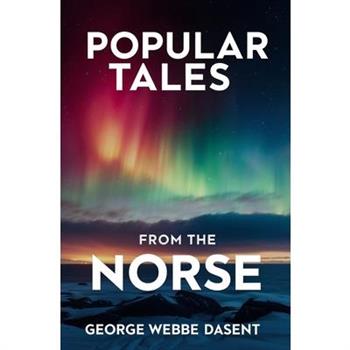
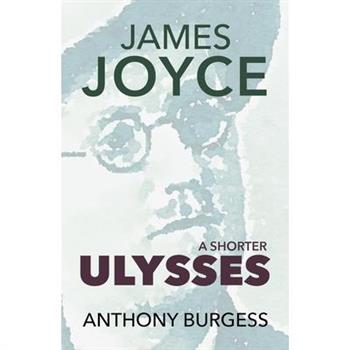
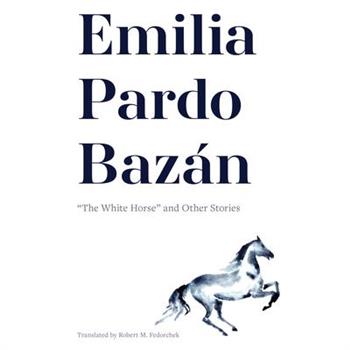
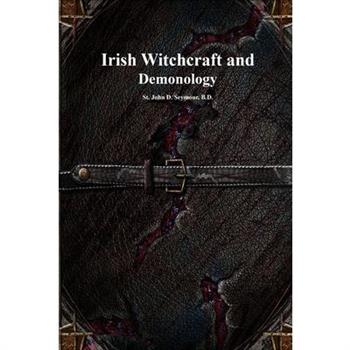

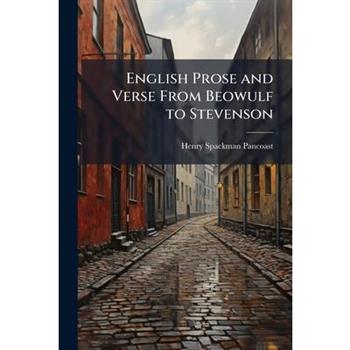




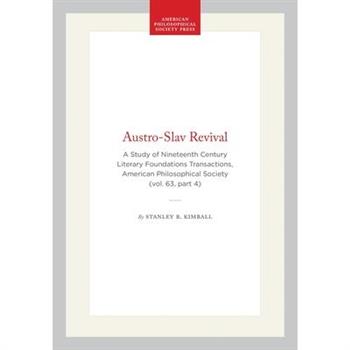
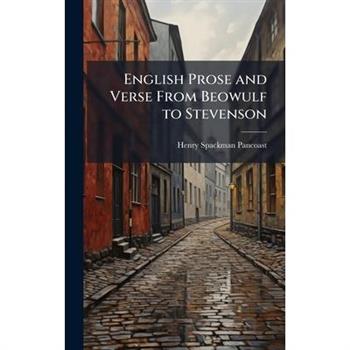
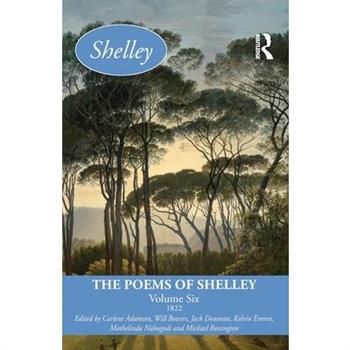
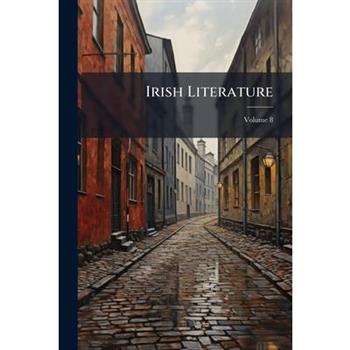
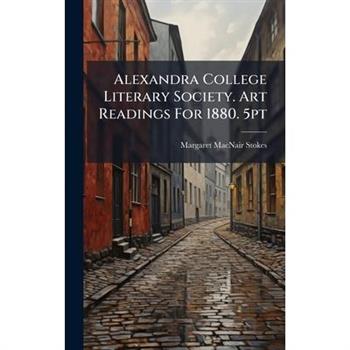
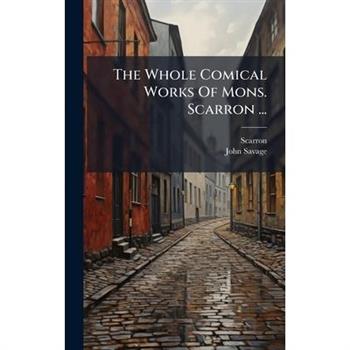
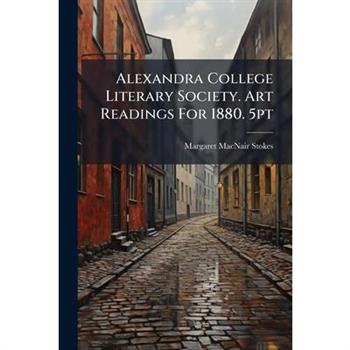

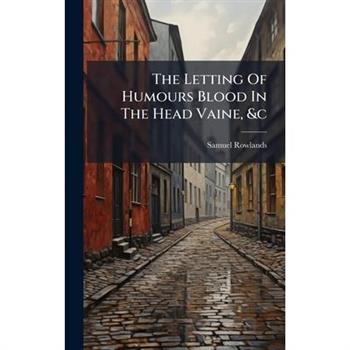
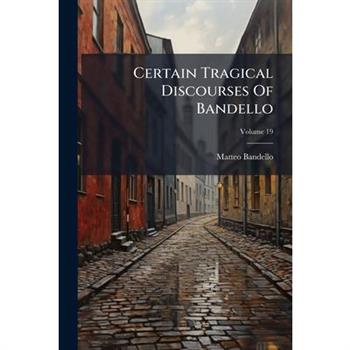
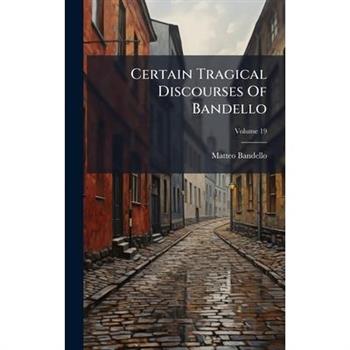
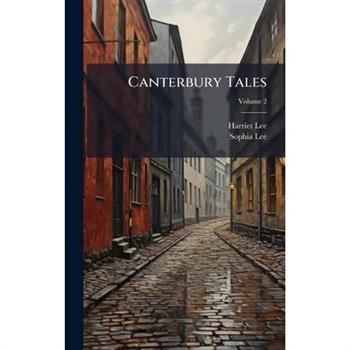
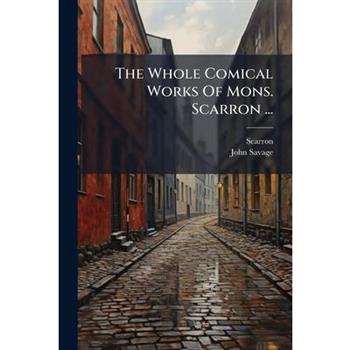
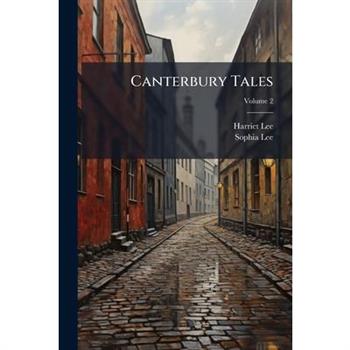
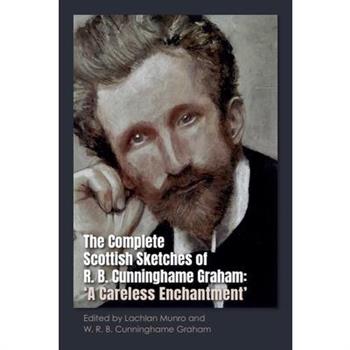
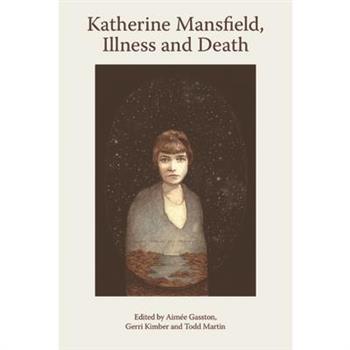

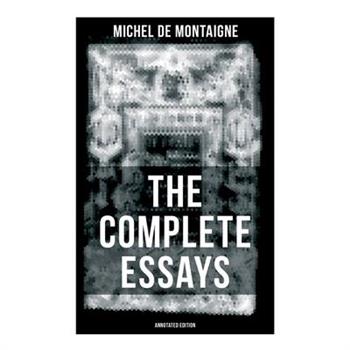
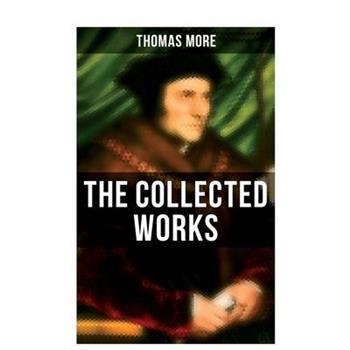
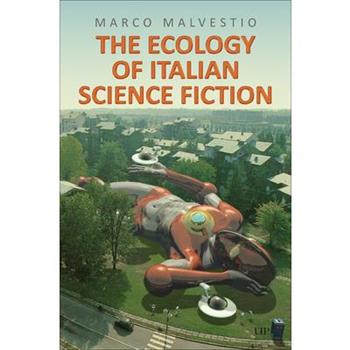
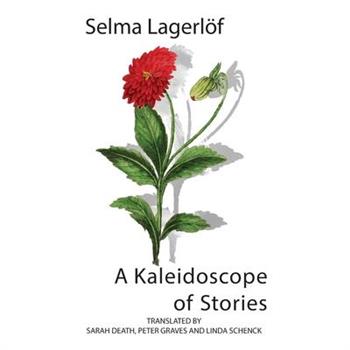
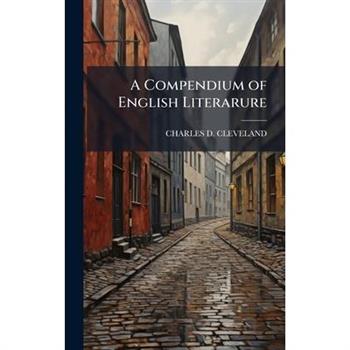
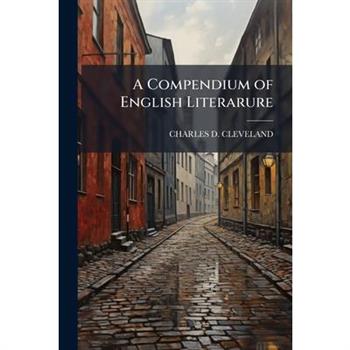

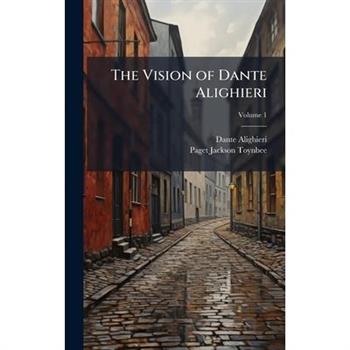
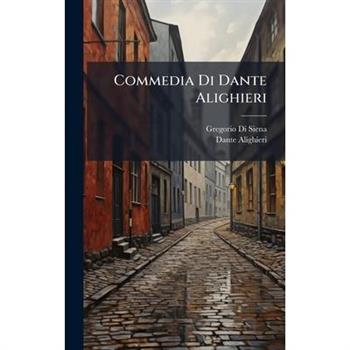
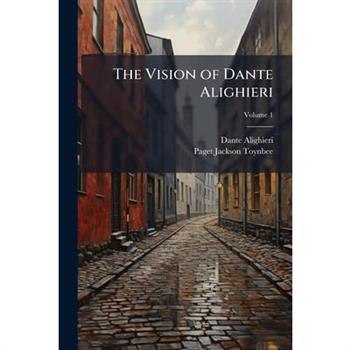
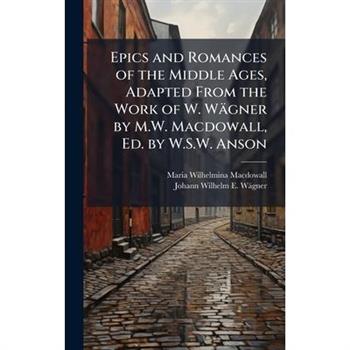
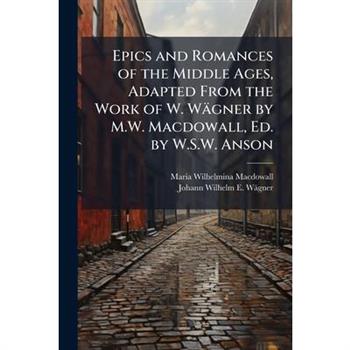
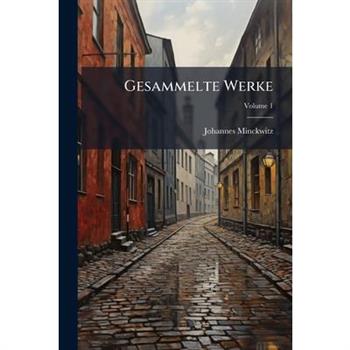
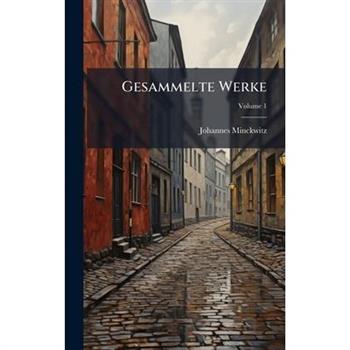
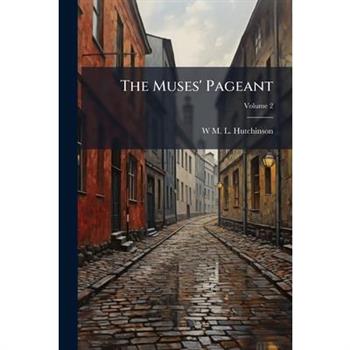
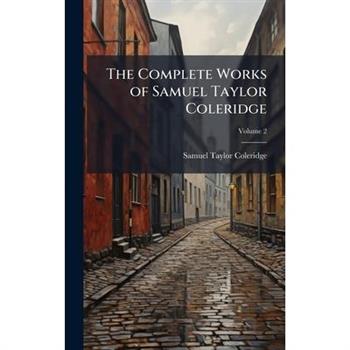
![The Christmas Tree [Ed. by G.F. Pardon] The Christmas Tree [Ed. by G.F. Pardon]](https://cdn.kingstone.com.tw/english/images/product/7141/9781023817141m.jpg?Q=d12fd)
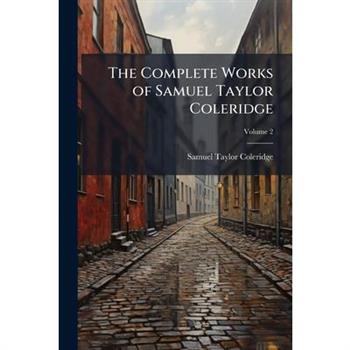
![The Christmas Tree [Ed. by G.F. Pardon] The Christmas Tree [Ed. by G.F. Pardon]](https://cdn.kingstone.com.tw/english/images/product/4638/9781023814638m.jpg?Q=75903)
![?œber Reinhardus [reinardus] Vulpes Ed. Knorr ?œber Reinhardus [reinardus] Vulpes Ed. Knorr](https://cdn.kingstone.com.tw/english/images/product/3880/9781024913880m.jpg?Q=c11e7)